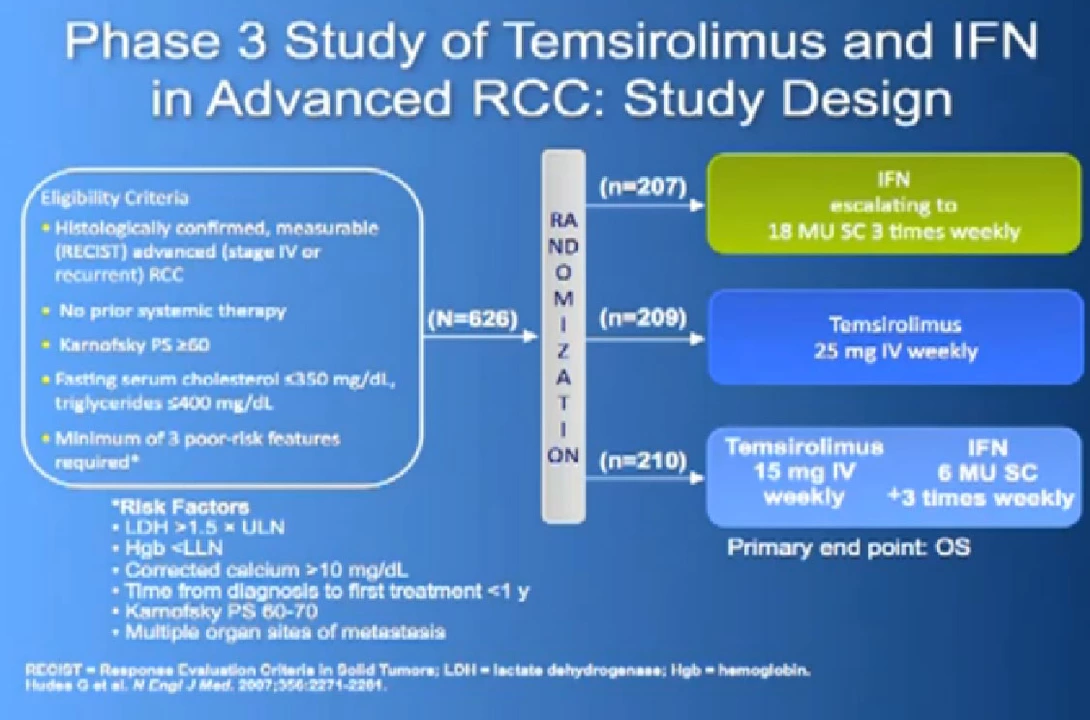Advanced Renal Cell Carcinoma: What You Need Now
Advanced renal cell carcinoma (RCC) means the cancer has spread beyond the kidney. That sounds scary, but treatment options have improved a lot in recent years. New drug combos can shrink tumors, control symptoms, and help people live longer with a better quality of life.
First things first: get clear staging and a plan. Doctors usually use CT or MRI scans of the chest, abdomen, and pelvis to map where the cancer is. A biopsy may confirm the subtype—clear cell is most common. Routine blood tests check kidney function, liver enzymes, and blood counts. Your performance status (how well you can do daily activities) helps guide choices too.
Treatment options
Systemic therapy is the main approach for advanced RCC. That means medicines that work through the whole body, not just surgery. There are three major groups to know about:
- Immunotherapy: Drugs that boost your immune system to attack cancer cells. PD-1/PD-L1 inhibitors and CTLA-4 inhibitors are often used alone or in combinations. Some combinations have shown real survival benefits in clinical trials.
- Targeted therapy: These drugs block pathways tumors use to grow, especially VEGF-related pathways. Common names you might hear are TKIs (tyrosine kinase inhibitors). They can slow tumor growth and help symptoms.
- Other options: mTOR inhibitors and older chemo-like drugs have niche roles, depending on prior treatments and individual health.
Surgery still has a role sometimes. Removing the primary kidney (nephrectomy) or debulking a large tumor can help in selected patients or to control symptoms. Radiation is useful for painful bone mets or brain lesions.
Living with advanced RCC
Side effects matter. Targeted drugs often cause high blood pressure, diarrhea, hand-foot changes, and fatigue. Immunotherapy can trigger immune-related issues—skin rashes, thyroid problems, or inflammation of organs. Report new symptoms early. Simple fixes like blood pressure meds, skin care, or brief treatment breaks make a big difference.
Ask about clinical trials. New combinations and targeted agents appear all the time, and a trial can give access to promising options. Also ask for a second opinion at a cancer center if you feel unsure.
Manage everyday life: keep an eye on kidney function and hydration, track weight and appetite, and treat anemia or pain proactively. Work with a team—oncologist, nephrologist, nurse, and a palliative care specialist—to stay comfortable and active. Palliative care is not giving up; it’s extra support to help you feel better during treatment.
Questions to bring to your clinic visit: What subtype do I have? Which treatment fits my overall health? What side effects should I expect, and how will you manage them? Are there relevant clinical trials? Getting clear answers helps you make choices that match your goals.
Advanced RCC is a lot, but modern medicine gives options. Stay curious, speak up about symptoms, and lean on your care team for decisions and support.

The Role of Biomarkers in Advanced Renal Cell Carcinoma Treatment
As a blogger, I've been researching the role of biomarkers in advanced renal cell carcinoma treatment. Biomarkers have emerged as crucial tools for predicting patient outcomes and personalizing therapy. They help clinicians to determine which patients are more likely to respond to specific treatments, such as immunotherapy or targeted therapy. Additionally, biomarkers can also help monitor treatment effectiveness and detect disease recurrence. Overall, incorporating biomarkers into advanced renal cell carcinoma treatment can significantly improve patient care and outcomes.
Read More